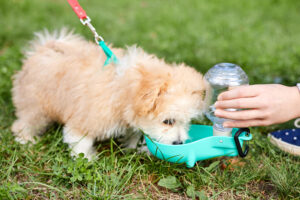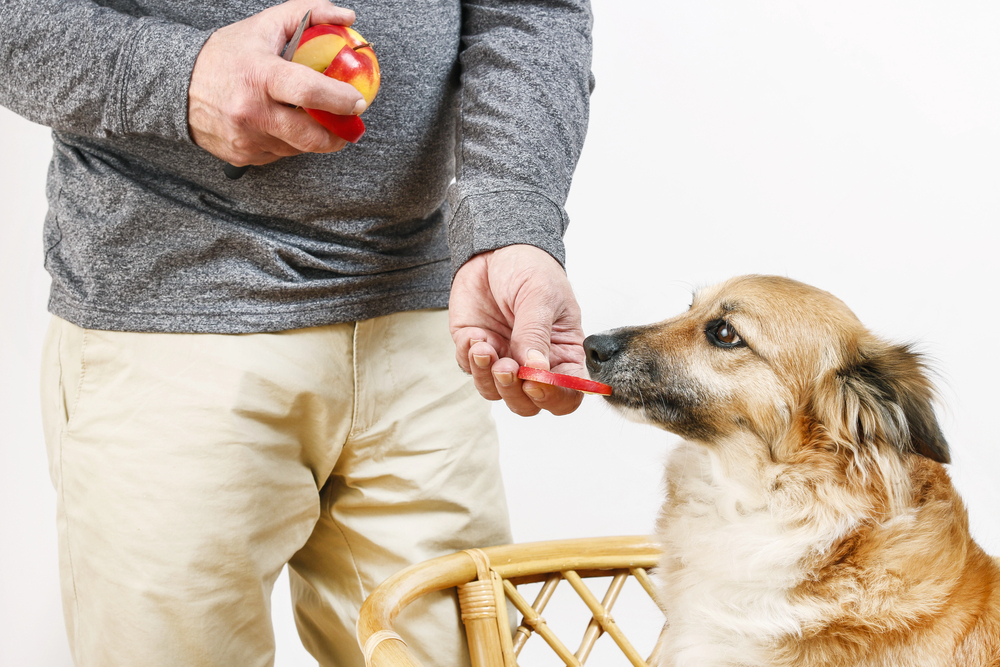
What Fruit Can Dogs Eat? A Complete Guide to Safe Fruits for Dogs
Have you ever found yourself wondering, “What fruit can my dog safely enjoy?” Well, you’re not alone. Many pet owners are curious about adding a little fruity variety to their dog’s diet. While some fruits are perfectly safe and even beneficial, others can pose risks.
Knowing the difference can make all the difference for your furry friend. In this guide, we’ll walk through the fruits that are safe for dogs, those that are best avoided, and how to treat your pup to a tasty snack. Let’s jump into the juicy details and discover some fun, dog-friendly options!

Boarding Clients!*Discount does not apply during holiday/peak rate periods.

What Fruit Can Dogs Eat?
Dogs can have many types of fruits as snacks, giving a sweet supplement to their diet. However, not all fruits are safe, so it is vital to know which ones are free to be shared and which to keep off from them. Here’s a quick guide through the fruits that your dog can have and those that are no good.
Safe Fruits for Dogs:
- Apples (without seeds and core)
- Blueberries
- Strawberries
- Bananas
- Watermelon (seedless)
- Cantaloupe (without the rind)
- Pears (without seeds and core)
- Pineapple (in small amounts, raw)
- Mango (peeled, no pit)
- Papaya (without seeds and rind)
- Raspberries
- Blackberries
- Kiwi (peeled)
Fruits Dogs Should Avoid:
- Grapes and raisins (highly toxic)
- Cherries (pits, stems, and leaves contain cyanide)
- Avocados (contains persin, which can cause health issues)
- Pomegranate (can cause digestive upset)
- Unripe tomatoes (contains solanine, which can be harmful)
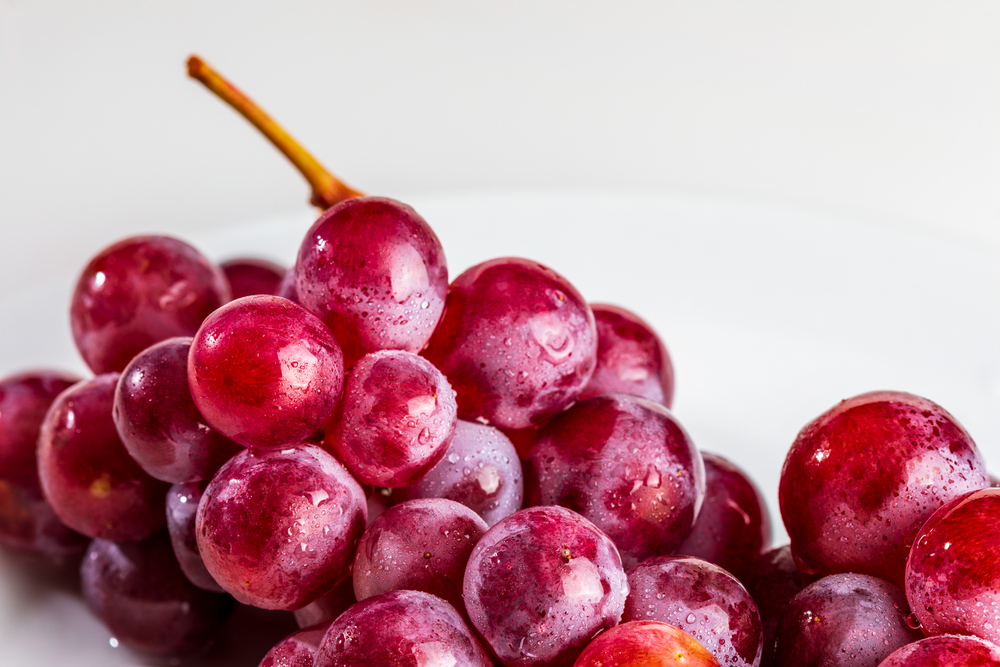
Can Dogs Have Strawberries?
Strawberries are safe to give dogs. If it’s fun but safe treats you seek to expand your pup’s palate, then strawberries are a fantastic addition. A fruity treat that is rich in fiber plus vitamin C, these fruits are healthy snacks for your dogs.
Can Dogs Eat Blueberries?
Yes, dogs can have blueberries. Unlike grapes, this berry does not pose a harm to your pup. Blueberries are filled with antioxidants, making for a tasty, flavorful, bite-sized treat. Just rinse them off and use them as a special treat during playtime or training in general.
Can Dogs Eat Bananas?
Yes, dogs can eat bananas. They are a wonderful low-calorie treat in moderation. They contain potassium and vitamins, crumbling them up to make sweet, healthy options during your dog’s snack time.
Can Dogs Eat Apples?
Yes, apples are a great addition to your dog’s diet. They are full of vitamins A and C, and dietary fiber. Apples can even help keep your dog’s teeth clean and freshen their breath. Just make sure to remove the core and seeds before feeding them to your dog.
Can Dogs Eat Watermelon?
Yes, dogs can eat watermelon, and it’s a great treat on hot days. With only 46 calories per cup, watermelon provides hydration and vitamins. Just remove the seeds and rind to avoid digestive issues, and your pup can enjoy this refreshing snack.
Can Dogs Eat Mango?
Yes, they can! Mangoes are full of vitamins that are beneficial for dogs. Just make sure to peel them and remove the pit before sharing them with your furry friend to avoid any choking hazards.
Can Dogs Eat Grapes?
No, dogs should never eat grapes. This also includes raisins, which are just dried grapes. Grapes are highly toxic to dogs, and even small amounts can cause severe reactions. It’s best to keep them far away from your pup’s reach.

Can Dogs Eat Pineapple?
Yes, raw pineapple, in small amounts, is a great treat for dogs. It’s packed with vitamins and hydration. However, steer clear of canned pineapple, as the added sugar can upset your dog’s stomach. Fresh is always best when it comes to this tropical treat!
Can Dogs Eat Oranges?
Yes, dogs can eat oranges. If you’re enjoying an orange and want to share it with your dog, feel free to offer a few segments. Oranges are safe for dogs in moderation and are a good source of vitamin C. Just be sure to remove the peel and seeds before sharing.
Can Dogs Eat Pears?
Yes, dogs can eat pears. Pears are a nutritious treat for dogs, packed with fiber, copper, and vitamins C and K. Just make sure to cut the pear into small, bite-sized pieces and remove the seeds and core, as the seeds contain traces of cyanide that can be harmful.
Can Dogs Eat Cantaloupe?
Yes, dogs can have cantaloupe in moderation. It’s a low-calorie fruit with high amounts of vitamins A and C, making for a refreshing and healthy treat, especially on a hot day. Remove the rind, as it can be tough for your pup to digest.
Can Dogs Eat Cherries?
The toxic compound to dogs is not from the cherries themselves but from the pits, stems, and leaves. These parts contain cyanide. If you must give your dog cherries, please be sure they are pitted and that any other possibly toxic parts have been removed.
Can Dogs Eat Avocado?
It is better not to feed your dog avocados. Since avocados contain persin – a toxic element for dogs and some other animals – given that they are not taking any risks, they should be excluded from their menu.
Can Dogs Eat Raspberries?
Yes, your dogs can eat raspberries, but with much restraint. They have great antioxidant properties and can be a healthy treat to add to your dog’s diet. Just remember they have small doses of natural sugar in them, so don’t overdo it.
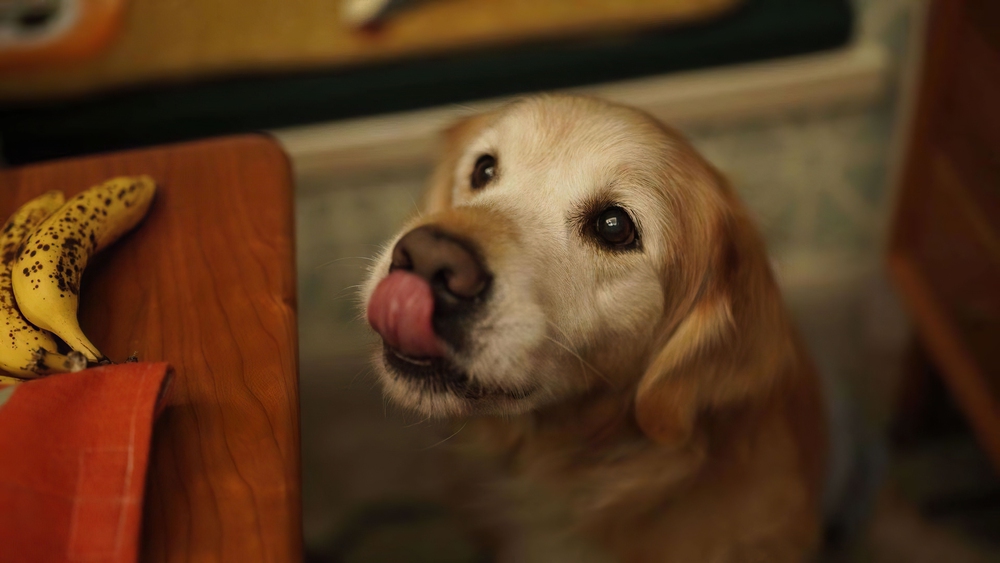
Can Dogs Eat Peaches?
Yes, dogs can enjoy peaches in small amounts. The flesh is rich in vitamins and fiber, making it a healthy treat. Just remember to cut it into small pieces and avoid canned peaches, which often contain added sugars. Always remove the pit to prevent choking or digestive issues.
Can Dogs Eat Blackberries?
Yes, blackberries are safe for dogs and make a delicious, low-calorie treat. They’re perfect for a sweet snack every now and then, and their natural antioxidants can even give your pup a little health boost.
Can Dogs Eat Coconut?
Yes, dogs can eat coconut. The meat and the oil are non-toxic to dogs and share similar health benefits. However, coconut contains medium-chain triglycerides, which can cause mild digestive upset in some dogs. Start with a small amount to see how your dog reacts.
Can Dogs Eat Papaya?
Yes, dogs can enjoy papaya as an occasional treat. This tropical fruit can benefit your dog’s digestion and immune system. Just make sure to remove the seeds and rind before serving, as these can be harmful or pose a choking hazard. Slice it into small, bite-sized pieces for an easy-to-eat, refreshing snack.
Can Dogs Eat Cranberries?
Yes, both fresh and dried cranberries are safe for dogs in small amounts. Some dogs might enjoy this tart treat, while others may turn up their noses. As with any snack, moderation is key—too many cranberries can upset your pup’s stomach.
Can Dogs Eat Kiwi?
Yes, dogs can eat kiwi, but it’s best to serve it peeled and diced into small pieces. A few bites now and then can be a fun, sweet snack for your dog. Just be sure to keep portions small to avoid any digestive issues.
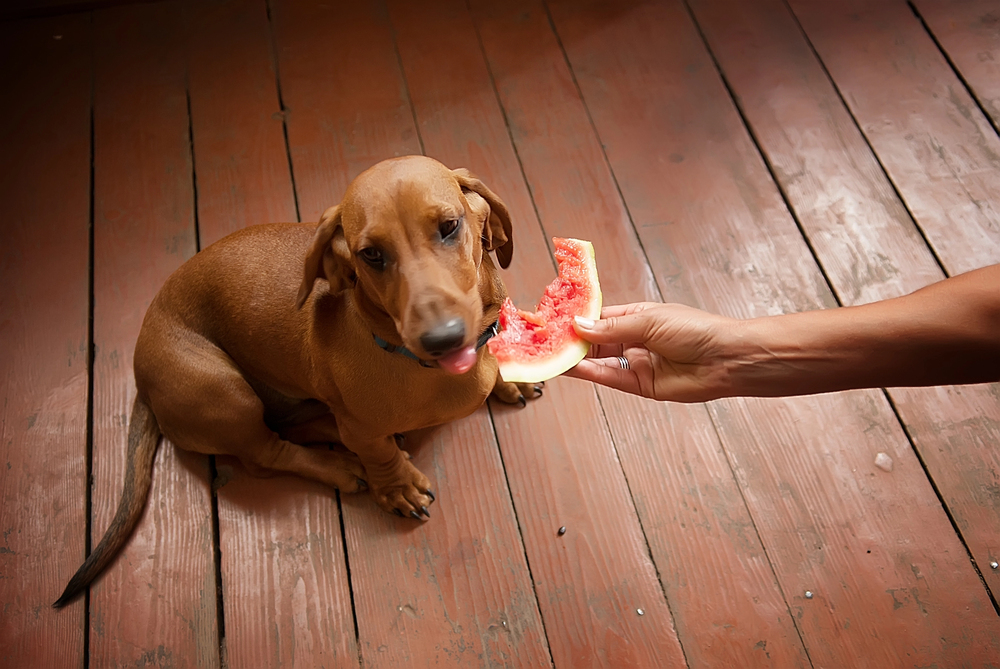
Can Dogs Have Blackberries?
Yes, dogs can have blackberries, but remember—they’re a treat, not a meal! Blackberries are safe for dogs and can add a touch of sweetness to their day. Just keep them as a small part of your dog’s diet to ensure their primary nutritional needs come from their regular food.
Can Dogs Eat Pomegranate?
Yes, dogs can eat pomegranates, but they might not be the best choice. While the fruit itself isn’t toxic, it can lead to digestive upset, especially if a dog eats the seeds or rind. Stick to small amounts and monitor how your dog reacts to this tangy fruit.
Conclusion
Sharing fruits with your dog can be a great way to mix up their treats and add a sweet treat to their diet. While many fruits are safe, even beneficial, it is always best to introduce new treats slowly and moderately.
Not all fruits are friendly to dogs, so toxic options like grapes and avocados must be kept out of reach. A little care will get your furry friend a delicious variety that keeps them wagging their tail.




